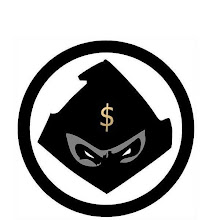
 Tyler Durden over at Zero Hedge called this a “crap rally”. It was. The dead and dying doubled and tripled as the shorts were forced out.
Tyler Durden over at Zero Hedge called this a “crap rally”. It was. The dead and dying doubled and tripled as the shorts were forced out.
The media obfuscated this fact by talking about "green shoots of recovery" and "mustard seeds".
A real rally on the back of a real economic recovery would involve commodities in general, but energy specifically.
1) Oil has failed to move higher and now threatens to break down completely. I last mentioned oil in Rising Bear Wedge, Break Down.
2) The Energy Select Sector SPDR (XLE) did not participate in this rally and now threatens to break down completely. XLE is now below both the 20 and 50 day EMAs (blue and red lines). Volume almost disappeared as prices tried weakly to push higher...
Tuesday, April 21, 2009
Oil, Energy: No Signs of a Recovery
Posted by
Ben Bittrolff
at
9:30 AM
![]()
Subscribe to:
Post Comments (Atom)








6 comments:
Oil has been overpriced since about 1966. General peace in the mid-east would go a long way to correcting: "funny" how Exxon is now the biggest US co., six years after war was brought to Iraq - it seems mid-east peace has not been very important to TPTB for about sixty years now.
The crazy speculation in oil last year tanked the economy: cheap oil/energy would cause the 'real economy' to boom.
That inexpensively-producable oil is no longer available in the territories of US control may go some way to explaining why the world price is so high, eh?
I'm no expert like the Ninja, but it "feels" to me like the new bull market remains intact and is ready to rip the head off more bulls!
No signs of recovery...
I kind of agree, at least if recovery means falling unemployment rates and rising industrial production - we are certainly not there yet! However, we may approach the end of the beginning of the crisis, that is, we will see the bottom in the not so distant future, say, sometime 2010. And considering the indicators of recovery that one could think of, energy prices, trade flows, industrial production, unemployment, and stock markets, it certainly doesn't look like a solid bull is just around the corner.
But let us try to see what is actually going on:
1. The first half of April turned out a lot less volatile on the geo-political scale than I feared.
2. The first half of April saw no violent bankruptcies or disagreements from the Big3, which I also feared.
3. The first half of April saw no "testing" of European banks exposed to Eastern Europe.
Result, we had a bear market rally, and April fared pretty good, at least so far. However, point 2 and 3 will come eventually, although, hopefully, we will escape massive geo-political turbulence (and here, at least, Obama seems to be doing an excellent "bail-out" of Bush-era folly).
So there is still little reason to believe that we will enter a new era of rising stock markets and 3% unemployment rates from June this year. And the fact that unemployment is still on the rise, industrial production is still falling, energy prices are still low, trade flows are still falling, and stock markets, well, still volatile!
I don't know exactly which signs of recovery certain commentators and politicians can see, they seem pretty elusive to me!
Remembering last year, there was talk about an "oil-standard" to the dollar. When the dollar went down, oil went up, and vice versa. Hence, if oil is falling, the dollar should rise. Of course, there are many potential mechanisms that gives us this result, but let's consider one more point that was heavily discussed last year: Decoupling.
As I said before, I believe this crisis will eventually lead to decoupling. And if the US is supposed to be somewhat decoupled from the rest of the world, stop being the world's consumer hence stop importing all kinds of stuff, the future dollar value is going to be a lot less.
Hence, a strong dollar indicates that energy si cheap (the dollar-oil standard), and that the US is still not "decoupled" from the global economy (is still the world's consumer), and thus the crisis is not yet over. Just like the British Empire in some 100 years back, the US is a sinking ship. It took Britain numerous recessions, one depression, and two world-wars to sink. The question is how much will it take the US?
From it was evident that Britain would seize to be the worlds supreme power, in 1914, to it de facto happened, it took 30 years, until it was de facto signed into the Bretton Woods agreement. Still, it took 14 additional years until the British understood it themselves, when they where humiliated during the Suez-crisis of 1958. I do hope that the US politicians and pundits may get the point a bit earlier than their British counterparts some time ago, and hence eases the process a bit.
Well Anon #1 has some company as to the role of last year's "oil shock" (funny how that 'came from outta nowhere'):
http://business.theatlantic.com/2009/04/can_the_oil_shock_alone_explain_the_financial_crisis.php
Even OPEC thinks that the speculation in oil is a bad bad thing:
http://www.bloomberg.com/apps/news?pid=20601087&sid=aO8_IHB2nOOQ&refer=home
This guy give up?
Post a Comment